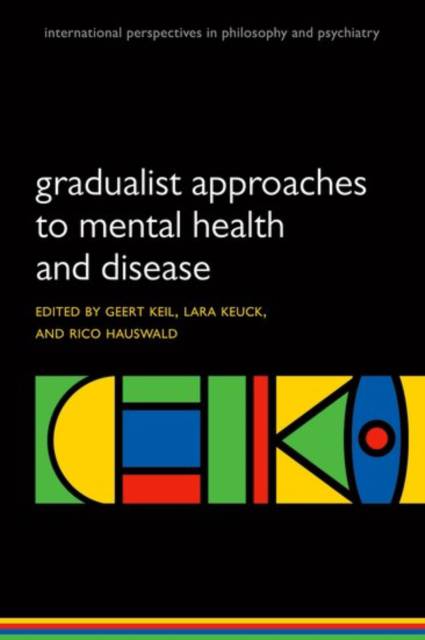
En raison d'une grêve chez bpost, votre commande pourrait être retardée. Vous avez besoin d’un livre rapidement ? Nos magasins vous accueillent à bras ouverts !
- Retrait gratuit dans votre magasin Club
- 7.000.000 titres dans notre catalogue
- Payer en toute sécurité
- Toujours un magasin près de chez vous
En raison de la grêve chez bpost, votre commande pourrait être retardée. Vous avez besoin d’un livre rapidement ? Nos magasins vous accueillent à bras ouverts !
- Retrait gratuit dans votre magasin Club
- 7.000.0000 titres dans notre catalogue
- Payer en toute sécurité
- Toujours un magasin près de chez vous
Description
Blurred boundaries between the normal and the pathological are a recurrent theme in almost every publication concerned with the classification of mental disorders. However, systematic approaches that take into account the philosophical discussions about vagueness are rare. This is the first volume to systematically draw various lines of philosophical and psychiatric inquiry together, including the debates about categorical versus dimensional approaches in current psychiatric classification systems, the principles of psychiatric classification, the problem of prodromal phases and sub-threshold disorders, and the problem of over-diagnosis in psychiatry, and to explore the connections of these debates to philosophical discussions about vagueness. The book consists of three parts. The first part encompasses historical and recent philosophical positions regarding the nature of demarcation problems in nosology. Here, the authors discuss the pros and cons of gradualist approaches to health and disease, and the relevance of philosophical discussions of vagueness for these debates. The second part of the book narrows the focus to psychiatric nosology. The authors approach the vagueness of psychiatric classification by drawing on contentious medical categories, such as PTSD or schizophrenia, and on the dilemmas of day-to-day diagnostic and therapeutic practice. Against this background, the chapters critically evaluate how current revisions of the ICD and DSM manuals conceptualise mental disorders and how they are applied in various contexts. The third part is concerned with social, moral, and legal implications that arise when being mentally ill is a matter of degree. Not surprisingly, the law is ill-equipped to deal with these
challenges due to its binary logic. Still, the authors show that there are more and less reasonable ways of dealing with blurred boundaries and of arriving at warranted decisions in hard cases.
challenges due to its binary logic. Still, the authors show that there are more and less reasonable ways of dealing with blurred boundaries and of arriving at warranted decisions in hard cases.
Spécifications
Parties prenantes
- Auteur(s) :
- Editeur:
Contenu
- Nombre de pages :
- 276
- Langue:
- Anglais
- Collection :
Caractéristiques
- EAN:
- 9780198722373
- Date de parution :
- 01-01-17
- Format:
- Livre broché
- Format numérique:
- Trade paperback (VS)
- Dimensions :
- 155 mm x 231 mm
- Poids :
- 408 g

Les avis
Nous publions uniquement les avis qui respectent les conditions requises. Consultez nos conditions pour les avis.






